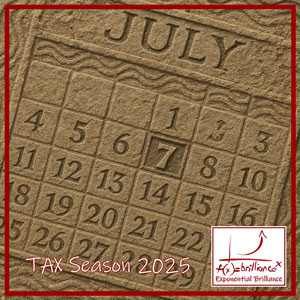B-BBEE Amendments Alert
by
 Amanda Roothman on 30 April 2019
Amanda Roothman on 30 April 2019
.png) New proposed B-BBEE amendments
New proposed B-BBEE amendments
The South African Department of Trade and Industry (DTI) recently published several draft amendments to the Broad-based Black Economic Empowerment Codes for public comment.
These changes appear to indicate government’s drive to achieve more black ownership and control in South African business although this may come at a cost when it comes to actually transforming these businesses.
In an effort to promote new businesses in SA, the B-BBEE codes were always forgiving, for example, a small business with an annual turnover of less than R10 million (Exempt Micro Enterprises – EME’s) would automatically qualify for a level 4 B-BBEE rating (with a B-BBEE recognition level of 100%)
EME’s and Qualifying Small Enterprises (QSE’s: Turnover between R10 million and R 50 million annually) have the benefit of enhanced B-BBEE recognition levels to the extent that they are black-owed and -controlled.
This means that if a 51% black-owned EME or QSE would qualify for a Level 2 B-BBEE rating (with recognition level of 125%). A 100% black-owned EME or QSE would qualify for Level 1, and recognition level of 135%)
The proposed amendments:
- EMEs and QSEs would not qualify for enhanced B-BBEE recognition levels if their black ownership is measured on the application of the modification of the flow-through principal. (This means that the >51% or 100% black-ownership must be measured on a direct flow-through basis)
- Generic Enterprises (Turnover above R50 million annually) would also qualify for enhanced B-BBEE recognition levels in much the same way as EMEs and QSEs currently qualify, without having to comply with the remaining elements of the B-BBEE Codes.
The issues:
If the proposed changes are implemented in their current form, and passed into law, there would be a far greater drive to create more effective black-owned and controlled businesses, according to Sanjay Kassen, specialising in B-BBEE, director in ENSafica.
However, while Generics’ B-BBEE recognition levels may contribute towards creating a more transformed ownership business environment, this would most definitely be at the expense of the remaining elements of the B-BBEE codes.
Thus, it will result in businesses focusing more on achieving black equity ownership and control, instead of the remaining critical transformation components, such as
- Black Management Control
- Employment Equity
- Skills Development of employees and unemployed people
- Enterprise and Supplier Development
- Preferential Procurement
- Socio-economic Development
Generic companies typically have the resources and expertise required to make a meaningful contribution in these areas, and the proposed changes will remove the incentive for them to do so.
Ownership structures:
Most ownership structures involving trusts as a business vehicle, are not compliant, according to the Broad-Based Black Economic Empowerment Commission. According to the Commission, the said structuring does not constitute genuine and effective black ownership.
Kassen said that broad-based black ownership schemes typically entail the use of Trusts that operate for the benefit of a defined group of black South Africans.
This means that these individuals may hold their rights of ownership in a Company as direct participants, or as participants though another form, such as a trust, provided that the trust complies with the relevant qualification criteria within the B-BBEE Codes.
These Trusts must operate for the benefit of the black South Africans who are able to participate as shareholders of the company in which the trust holds shares, with
- the right to vote
- the right to receive economic interest and
- the right to receive unencumbered ownership of the said shares at a point in time.
There is a clear directive from government to eliminate schemes, that financially benefit the black public at large, without granting them rights of ownership.
“To simply state that the vast majority of B-BBEE trust are not compliant and constitute fronting, is not something that Corporate South Africa is going to accept easily, and such a change would cause significant instability in our already challenging economic market,” Kassen said.
He continued to say that there needs to be a more collaborative approach between government and Corporate South Africa so that there can be a clear direction going forward on broad-based black ownership.
Until a new and simplified direction is agreed upon, there will likely be some form of cessation on existing broad-based structures. Consideration must also be given to a dispensation for existing broad-based structures.
It may be appropriate for new course to be applicable to new broad-based structures established after a pre-announced future date.
Kassen said that this would be the most practical and sensible approach in order to ensure a smooth and stable transition to a new broad-based dispensation.
⚙️ Knowing Where to Tap: 🔨 The Brilliance Behind Precision
✨ A story about insight, experience, and collaboration....
by Amanda Roothman on 10 October



.jpg)